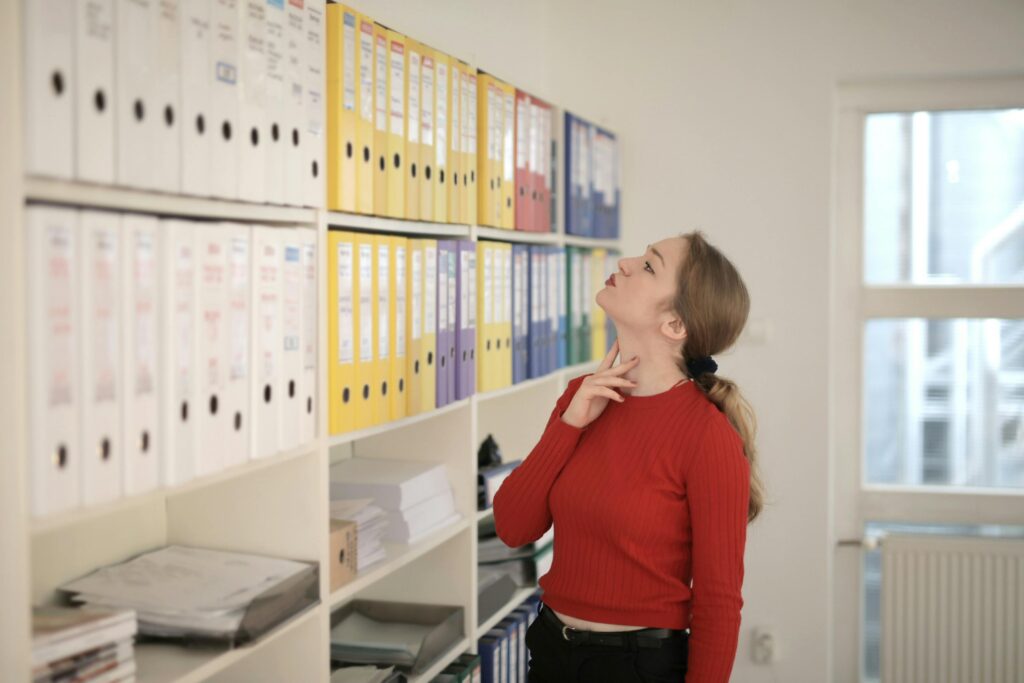Mondial goes to the SAP Partner Summit for SME 2024!

We’ll be in Phoenix and Madrid Mondial will be in attendance at the 2024 SAP Partner Summit for SME in both Phoenix and Madrid to network with SAP Partners and spread the news about Mondial. Mondial is set to participate in the esteemed 2024 SAP Partner Summit, specifically designed for SMEs, across two vibrant locales: Phoenix and Madrid. This event marks a cornerstone for SAP Partners dedicated to tailoring SAP solutions for small to mid-sized enterprises. The summit is an unparalleled platform for partners to immerse themselves in the latest SAP innovations, including SAP Business One, SAP Business ByDesign, SAP generative AI assistant “Joule” and the strategic use of the SAP Business Technology Platform to boost cloud-based advancements. Additionally, the event emphasizes the critical role of SAP S/4HANA Cloud in shaping cloud-centric growth strategies. Mondial’s presence aims to forge meaningful connections with fellow SAP Partners while promoting their latest endeavors within the SAP ecosystem.. SAP Partner Summit for SME is where we unveil our powerful and scalable reporting solution Mondial works well with SAP Business One, ByDesign or S/4 HANA customers. When Industrial Battery Products (IBP) wanted timely, dependable financial reporting that would work seamlessly with SAP Business One, they turned to Mondial Software. Mondial is perfect for those enterprises with an ecosystem using multiple ERPs. Mondial also works well on those who have complex consolidations or financial reporting needs. Above all, Mondial can handle disparate charts of accounts, multiple currencies and even multiple year ends. Modern cloud technology with drill down to detailed line level transactions, automated eliminations, combined with a powerful yet simple report writer makes Mondial the ultimate tool for financial compliance reporting. Mondial is easy to use, affordable and powerful. SAP Partner Summit for SME April 10-12, 2024 in Phoenix, Arizona This premier event will be held at the spectacular Phoenix Convention Center. The Phoenix Convention Center, recently recognized as one of the world’s most sustainable and energy-efficient venues, has emerged as a premier destination for meetings and exhibitions. Boasting four expansive levels equipped with the latest in event technology, the Center is a testament to innovative design and eco-friendly operations. This award-winning facility is not just a hub for events but also a part of Phoenix’s commitment to sustainable urban infrastructure. For tourists and convention attendees, the Valley Metro Rail, also referred to as the MetroLink, is a highlight of the city’s eco-friendly transport options. This light rail system offers a greener alternative to car travel, significantly reducing traffic congestion and environmental pollution. Conveniently linking the Phoenix Sky Harbor International Airport with the heart of downtown, the MetroLink ensures seamless connectivity. A quick, 15-minute ride connects passengers to the downtown area, where a variety of hotels await, making the journey from the airport to your accommodation both effortless and affordable SAP Partner Summit for SME April 23-25, 2023 in Madrid The IFEMA Palacio Municipal the venue for the SAP Partner Summit for SME 2024, stands as a beacon of modernity in Madrid’s bustling business district. This avant-garde venue is renowned for its cutting-edge design and multifunctional spaces, equipped with the latest technology and services essential for hosting a wide range of events. From international congresses and corporate meetings to product launches, the IFEMA Palacio Municipal is designed to accommodate various professional gatherings with ease and efficiency. Conveniently located, the nearest Metro station, FERIA DE MADRID on Line 8, offers easy access right to the venue’s doorstep. This particular metro line is a lifeline for visitors, providing a direct connection not only to the Madrid-Barajas Adolfo Suárez Airport but also to the extensive network of Cercanías RENFE trains. Furthermore, at Nuevos Ministerios station, passengers can seamlessly transfer to other metro lines, facilitating smooth travel across Madrid. For tourists attending conventions or events at the IFEMA Palacio Municipal, this connectivity means effortless navigation in and around the city. Whether you’re looking to explore Madrid’s rich cultural heritage, dine in its world-renowned restaurants, or simply get from your hotel to the venue, the strategic location of IFEMA Palacio Municipal and its proximity to major transport links ensures a hassle-free experience. Register to join the Summit Register here for the Phoenix leg. Alternatively, you can also meet up with our VP of Business Development, Tim Teeter. Register here for the Madrid Leg. Likewise, you can also meet up with our European Director of Business Development, Dipan Shah. Fill out the form below so we can meet you personally at the SAP Partner for SME Summit Please enable JavaScript in your browser to complete this form.Name *Email *CompanyI'd like to schedule a no-obligation meeting to learn more how Mondial can help my organization. Submit
Diversity in Accounting Departments: Why It Matters & How To Improve It

Number crunching and the D&I Significance In accounting, recognizing the significance of diversity and inclusion is important. Research indicates that a considerable portion of job seekers (67%) prioritize diversity when seeking new employment opportunities, with over half of existing employees expressing a desire for increased diversity within their workplace. Embracing diversity in accounting is crucial, as it fosters a broader range of perspectives and insights, enriching decision-making processes and ultimately contributing to a more innovative and effective F&A. It’s imperative for companies to actively cultivate an inclusive environment where all individuals feel valued and respected, thereby harnessing the full potential of diverse talent and promoting sustained success in the field of finance. What is Workplace Diversity? Understanding diversity in the workplace encompasses creating an environment in organizations’ accounting and finance departments where biases, both conscious and unconscious, against underrepresented groups are eradicated. This ensures that everyone, regardless of their background, has equal opportunities to thrive and contribute. Despite concerted efforts towards diversity and inclusion (D&I) in the workplace, organizations still face significant challenges in this regard. Lack of Representation: There remains a significant underrepresentation of minorities in leadership positions within accounting departments. This gap highlights the ongoing struggle to achieve diversity at all levels of the profession. Recruitment and Retention: Accounting firms often struggle with recruiting and retaining diverse talent, which suggests that diversity and inclusion efforts need to be more effectively integrated into hiring practices and workplace culture. Cultural Competence: There’s a need for increased cultural competence among all employees to foster an inclusive environment where diverse talents can thrive. This includes training and development programs focused on diversity and inclusion. Bias in Advancement Opportunities: Unconscious bias still plays a role in the advancement and promotion within accounting departments, limiting the career growth of diverse employees. Diversity in Thought and Innovation: While there’s an understanding that diversity drives innovation, accounting departments often face challenges in fully leveraging diverse perspectives to enhance decision-making and problem-solving processes. Why Does Diversity Matter in Accounting? Recognizing the importance of diversity within accounting departments reveals compelling justifications for its essentiality. Here’s why diversity matters: Fueling Innovation: Diversity within accounting teams exposes professionals to a broad spectrum of perspectives. Collaboration among individuals from varied backgrounds stimulates the emergence of fresh ideas and viewpoints, thereby fostering innovation in ways that might otherwise remain unexplored. Enhancing Creativity: Beyond innovation, diversity in accounting also boosts creativity. Meaningful interpersonal connections among employees from diverse backgrounds are pivotal for unlocking the creative potential of diversity. Establishing such connections promotes the flourishing of creativity. Simple methods like pairing individuals with contrasting characteristics and engaging them in cooperative activities have been proven effective in fostering interpersonal bonds. Building Employee Commitment: Research by Deloitte, involving over 1,550 accounting professionals, emphasizes the positive correlation between diversity and employee engagement. Given that engagement is fundamental to a thriving company culture and can significantly augment profits, fostering diversity in accounting creates a mutually beneficial scenario. With more committed employees, a positive workplace environment is cultivated, and the benefits of a diverse workforce are realized. Driving Profitability: Dispelling misconceptions, diversity and inclusion directly contribute to increased profits in organizations. A study by McKinsey & Company, analyzing 180 companies across the US, France, Germany, and the UK, revealed that firms with greater diversity tended to outperform financially. This highlights the tangible link between diversity initiatives and financial success in the accounting industry. Enhancing Diversity in Accounting at Your Company Promoting diversity in the workplace and nurturing an inclusive environment requires proactive steps. Here are effective strategies to kickstart the development of a more diverse workforce: Review your hiring approach: Scrutinize your recruitment methods to identify and address any biases, whether conscious or unconscious, that may hinder diversity in hiring. This entails assessing talent acquisition channels, refining the recruitment process, reassessing desired skill sets, and ensuring diversity in decision-making panels. Set diversity goals: Establish specific diversity objectives covering various aspects such as the percentage of new hires, diversity representation across the workforce, pay equity, and promotion rates. By setting clear targets, monitoring progress regularly, and ensuring compliance, the firm remains accountable and prevents diversity from being sidelined. Harness technology: Employ modern technology to pinpoint and rectify biases in compensation and promotion practices that impede diversity. Human observation alone may not effectively discern underlying data trends. By incorporating AI and other technological tools, firms can comprehensively analyze data patterns and implement corrective actions to promote diversity. Introduce sponsorship initiatives: Take inspiration from programs like Goldman Sachs’ 1000 Women initiative, which fosters inclusivity by providing financial support to women entrepreneurs facing funding barriers. Similarly, develop sponsorship programs within your firm to aid underrepresented groups. These programs can offer additional support to diverse new hires, facilitate their career advancement, and contribute to their overall success within the organization. Diversity’s Impact: The 4 Largest Global Accounting Firms Leading the Way While some companies are known for embracing diversity and inclusion on a broader level include Sodexo, Johnson & Johnson, Mastercard, Accenture, Kaiser Permanente, Deloitte, and Marriott. While these examples focus on the organization as a whole, rather than exclusively on finance and accounting departments, embracing diversity across all departments, including finance and accounting, can lead to a wealth of advantages: There are however, real-life examples of how diversity and inclusion are critical in accounting firms which can be observed in the operations of multinational accounting firms such as Ernst & Young (EY), Deloitte, PricewaterhouseCoopers (PwC), and Klynveld Peat Marwick Goerdeler (KPMG). Ernst & Young (EY): EY operates in numerous countries worldwide, each with its own unique cultural, regulatory, and economic landscapes. In such a diverse environment, having a workforce that reflects the global clientele allows EY to better understand and navigate the complexities of international accounting standards, tax laws, and business practices. For instance, when advising a multinational corporation on cross-border transactions, having accounting teams with diverse cultural backgrounds can provide valuable insights into local regulations, business customs, and market trends. This diversity enables EY to offer more tailored and effective
Achieving Consistency: The Importance of Standardized Financial Reporting

Standardization in Financial Reporting Standardization in financial reporting serves as the backbone of transparency and accountability within the accounting profession. It encompasses a set of rules, regulations, and principles that dictate how financial information should be recorded, summarized, and presented in financial statements. Significance of Standardization in Financial Reporting: Enhanced Comparability: Standardization ensures that financial statements from different companies are prepared using the same set of rules and principles. This facilitates comparisons between companies operating within the same industry or across different sectors. Investors and stakeholders can analyze financial data more effectively when they can rely on consistent formats and accounting methods. Improved Transparency: Standardization promotes transparency by requiring companies to disclose relevant financial information in a clear and comprehensive manner. This transparency fosters trust among investors, creditors, and other stakeholders, as they can gain insights into a company’s financial health and performance without ambiguity or obfuscation. Facilitates Decision Making: Standardized financial reporting aids decision-making processes for investors, creditors, and other stakeholders. By providing consistent and reliable financial information, standardization enables stakeholders to assess the risks and rewards associated with investing in or transacting with a particular company. This informed decision-making is essential for allocating resources efficiently and mitigating financial risks. Global Accessibility: In an increasingly interconnected global economy, standardized financial reporting facilitates cross-border investments and transactions. Harmonized accounting standards, such as International Financial Reporting Standards (IFRS), promote consistency in financial reporting practices across different countries and jurisdictions. This global accessibility enables investors to evaluate opportunities and risks on a broader scale, contributing to the efficiency of capital markets. Regulatory Compliance: Standardization ensures that companies comply with regulatory requirements set forth by governing bodies such as the Securities and Exchange Commission (SEC) in the United States or the International Accounting Standards Board (IASB) globally. Adhering to standardized accounting principles helps companies avoid legal and regulatory scrutiny while maintaining credibility and integrity in the eyes of regulators and the public. Stakeholder Confidence: Consistent and transparent financial reporting instills confidence in stakeholders, including shareholders, lenders, and customers. When companies adhere to standardized reporting practices, stakeholders have greater assurance that financial statements accurately reflect the company’s financial position and performance. This confidence is essential for fostering long-term relationships and partnerships that support sustainable business growth. Benefits of Standardization Standardization offers several benefits to companies and their stakeholders. These include: Consistency and comparability: Standardization ensures that financial statements are consistent and comparable across different companies, making it easier for investors and other stakeholders to analyze and compare financial performance. Accuracy: Standardization helps in maintaining the accuracy of financial statements by providing clear guidelines and rules for recording transactions. Transparency: Standardization enhances transparency in financial reporting by ensuring that all relevant information is disclosed in a clear and understandable manner. Reduced costs: Standardization can lead to reduced costs for companies by simplifying the financial reporting process and reducing the need for extensive explanations and justifications. Improved regulatory compliance: Standardization helps companies comply with regulatory requirements more easily, as they have clear guidelines to follow. Challenges to Standardization in Financial Reporting Despite the benefits of standardization, there are several challenges that companies face when implementing standardized financial reporting practices. These include: Different accounting standards: There are multiple accounting standards worldwide, and companies may need to comply with different standards depending on their location and the jurisdictions in which they operate. Complexity of financial reporting: Financial reporting can be complex, especially for large and multinational companies with diverse operations. This complexity can make it difficult to adhere to standardized practices. Lack of enforcement: In some cases, there may be a lack of enforcement of standardized financial reporting practices, which can lead to non-compliance and inconsistencies in financial statements. Technological advancements: Advances in technology, such as blockchain and artificial intelligence, can bring new challenges to financial reporting, as companies may need to adapt their practices to incorporate these technologies. Cost of compliance: Compliance with standardized financial reporting practices can be costly, especially for smaller companies with limited resources. Comparative Analysis of GAAP and IFRS: Understanding Key Differences in Accounting Frameworks GAAP (Generally Accepted Accounting Principles) and IFRS (International Financial Reporting Standards) are two of the most widely recognized accounting frameworks globally. They are used to prepare, present, and report financial statements for companies and organizations. The key differences between GAAP and IFRS include their conceptual approach, the specifics of financial reporting, and their geographical usage: Conceptual Approach: GAAP is rules-based, with a focus on detailed rules for specific accounting scenarios. It provides precise guidelines and conditions for financial reporting. IFRS is principles-based, emphasizing broad concepts and interpretations of financial reporting. This allows for more flexibility and application in varied circumstances. Inventory Reversals: GAAP does not allow inventory write-down reversals, meaning once an inventory’s value is written down, it cannot be increased in value in future financial statements. IFRS allows inventory write-down reversals if specific criteria are met, reflecting changes in market value or use. Development Costs: GAAP requires research and development costs to be expensed when incurred. IFRS allows for the capitalization of development costs if certain criteria are met, recognizing them as an asset. Financial Statement Presentation: GAAP financial statements include the balance sheet, income statement, statement of comprehensive income (can be a separate statement or combined with the income statement), statement of cash flows, and statement of stockholders’ equity. IFRS financial statements require a balance sheet, income statement, statement of changes in equity, statement of cash flows, and notes, including a summary of significant accounting policies and other explanatory information. IFRS also requires the presentation of a statement of comprehensive income. Fixed Assets: GAAP allows for the depreciation of property, plant, and equipment based on a component approach but it is not commonly practiced. Revaluation of fixed assets is not permitted. IFRS encourages the component approach for depreciation and allows for the revaluation of fixed assets to fair value if fair value can be reliably measured. Leases: Both GAAP and IFRS have seen reforms in lease accounting, requiring leases to be recognized on the balance
Generative AI and Accounting Automation

Picture this for a moment Envision a scenario where the accounting team is liberated from the tedious tasks of manual reconciliations and journal entries, pivoting instead towards strategic endeavors like risk management, capital distribution, and comprehensive financial planning. This scenario isn’t just a fanciful dream; it’s within reach, thanks to generative artificial intelligence (AI). Generative AI represents a profound transformation in accounting practices, not by replacing accountants but by amplifying their capabilities, enabling them to excel in their roles. Some Examples The excitement around generative AI stems from its ability to automate complex tasks that traditionally consumed vast amounts of time, such as transaction matching and invoice processing. Imagine possessing a virtual team of accountants operating tirelessly around the clock, executing tasks at unparalleled speeds. While robotic process automation (RPA) has previously been lauded for its ability to perform repetitive, rule-based tasks by mimicking human interaction with computer systems—thereby boosting efficiency and minimizing errors in operations such as data entry and report generation—its application has been somewhat restrictive. RPA operates within the confines of predefined rules and procedures, which can make its setup and integration into existing systems challenging. Generative AI, however, transcends the capabilities of basic automation by introducing intelligent, decision-making algorithms that are trained on extensive datasets. These algorithms can understand contexts, detect patterns, and even recommend strategic actions, allowing for a more nuanced and adaptable form of accounting automation. For example, while RPA is adept at matching invoices to purchase orders, generative AI can identify discrepancies in invoices, propose adjustments, and anticipate potential future errors. This technology doesn’t just automate the reconciliation process, ensuring the accuracy of financial statements; it also crafts risk assessments that not only identify potential issues but suggest proactive measures. Imagine a system that warns you of potential tax code violations before they escalate into significant problems. Accountants could then shift their focus from routine end-of-month tasks to assessing the financial implications of entering new markets or pursuing acquisitions. Example 1: Budget Forecasting with Generative AI Imagine a scenario where a company wants to forecast its budget for the next fiscal year, considering several variables such as market growth, inflation rates, and internal expansion plans. Traditionally, this task would require extensive data collection, sophisticated spreadsheet models, and potentially the help of a financial analyst to interpret complex economic indicators. With an AI-enhanced financial model, stakeholders can ask questions like, “What would our budget look like next year if market growth slows down by 2%, but we expand our product line by 20%?” The AI can instantly process historical data, factor in the specified conditions, and generate a detailed budget forecast. This forecast could include revenue projections, expense estimates, and cash flow analysis, all broken down in an easy-to-understand format. Example 2: Investment Analysis through Conversational Queries Consider an investment firm evaluating the potential of a new market. Analysts might want to understand the financial viability of investing in a specific sector within this market. By using generative AI, they could ask, “What are the projected returns on investment (ROI) for sector X over the next five years, assuming a steady 3% annual growth in the market?” The AI model would analyze data from similar investments, market trends, and the specific growth rate mentioned to provide a nuanced analysis of expected ROI, associated risks, and recommendations for risk mitigation. This process simplifies complex investment analysis, making it more accessible to a wider range of professionals within the firm. Example 3: Risk Management and Scenario Analysis Risk management is another area where generative AI can have a significant impact. For instance, a company concerned about potential risks associated with fluctuations in foreign exchange rates could ask, “How would a 10% depreciation in currency Y affect our international revenue streams?” The AI could then simulate various scenarios, taking into account the company’s revenue structure, hedging strategies, and past impacts of currency fluctuations. This analysis would not only provide insights into potential financial exposure but also suggest strategies to mitigate these risks, such as diversifying currency exposure or entering into forward contracts. Example 4: Real-time Decision Support for Retail Operations For a retail company facing inventory management decisions, querying a generative AI with, “What should our inventory levels be for the upcoming holiday season, considering last year’s sales trends and this year’s economic forecast?” can yield actionable insights. The AI model can predict optimal inventory levels by analyzing sales data, consumer behavior trends, and economic forecasts, thereby preventing both overstock and stockouts. These examples underscore the role of LLMs in enhancing decision-making processes within FP&A. By allowing professionals to interact with financial models through natural language, generative AI democratizes access to complex financial analysis, making it possible for individuals across an organization to contribute to strategic financial decisions. The future of FP&A, powered by generative AI, promises not only increased efficiency and accuracy but also a more inclusive and strategic approach to financial planning and analysis. The capacity to access such detailed analyses through natural language queries can significantly enhance strategic flexibility, enabling teams to adapt swiftly and effectively to market dynamics. This capability offers a competitive edge, particularly in fluctuating markets where prompt, informed decisions are paramount. Now, irrespective of their programming proficiency, all team members can partake in sophisticated financial planning and decision-making. Sooner than later The introduction of generative AI into accounting goes beyond enhancing operational efficiency; it heralds a radical change in the role of accountants. With generative AI’s assistance, accountants transition from traditional number crunching to becoming indispensable strategic advisors, a shift that is increasingly important in modern business. It’s clear that generative AI isn’t merely an abstract future concept but a current reality reshaping the profession. Embracing this technology today positions individuals and organizations at the forefront of innovation in the accounting field, ready to lead into the future. Your next steps… 💡Click here to reduce time spent on period-end reporting 🔋Click here if you wish to solve 25+ Spreadsheet reporting issues 🔆 Click here to improve the accuracy and
Generative AI in F&A: Everything Starts Here (Part 1 of 2)

Everything starts here The emergence of generative artificial intelligence (AI) in the financial sector represents a significant leap forward from traditional data processing methods. Generative AI distinguishes itself by not only analyzing existing data but also by creating new data that wasn’t part of its initial training. In simpler terms, this advanced form of AI utilizes intricate algorithms and extensive datasets to perform simulations and make forecasts. These algorithms, rooted in artificial neural networks, excel in discerning patterns and correlations within the data. Once adequately trained, they are capable of producing new data points that, while not identical, closely resemble the training data. This capability is akin to an experienced financial analyst making predictions about market trends, but generative AI operates on a much larger scale and with greater speed, a feat beyond human capability. Consider this For instance, consider the task of projecting a company’s revenue for the upcoming quarter. Generative AI can evaluate thousands of potential scenarios by analyzing factors such as market trends, consumer behavior, and supply chain issues. These analyses can offer a spectrum of potential outcomes, enabling more precise planning and decision-making. The applications are vast, ranging from developing cash flow forecasts under different market scenarios, evaluating the financial implications of various tax strategies, to predicting the outcomes of potential mergers or acquisitions. Generative AI promises to transform routine tasks significantly. It has the potential to automate the reconciliation process and produce comprehensive risk assessments, thereby enhancing the efficiency and accuracy of accounting operations. This shift allows accounting teams to focus on strategic activities rather than tedious tasks, fostering a transition to more thoughtful and impactful work. Just to automate The use of generative AI is not merely about automating existing tasks; it represents an unprecedented opportunity for rapid and sophisticated analysis, previously unimaginable. As we become acquainted with the capabilities of generative AI, it’s worth considering its transformative potential in corporate finance and accounting. The future has arrived, and it holds immense possibilities for innovation and advancement in the financial industry. Generative Models Embark on an exploration into the future of financial planning and analysis (FP&A), where the ins and outs of financial models are unraveled not through complex formulas, but through engaging, straightforward dialogues with intelligent systems. Picture generative models as modern-day financial oracles, equipped to communicate in everyday language. This exciting advancement is grounded in the principles of neural networks and algorithms, designed to replicate human-like understanding of data. Unlike conventional machine learning models that predict outcomes based on historical data, generative models take a leap forward by creating entirely new data points that weren’t included in their original training set. Imagine a neural network as an elaborate network of nodes, each performing a mathematical function. These nodes process inputs, execute mathematical operations, and forward the output to subsequent layers, allowing the system to learn and adjust its parameters for improved predictions or to generate more lifelike data. Simulation is Key The innovation in generative models lies in their architecture, notably the generator and discriminator components. The generator crafts data resembling the training set, while the discriminator evaluates whether the data is genuine or produced by the generator. Through continuous interaction, the generator hones its ability to produce data indistinguishable from real data to the discriminator. This process, often associated with generative adversarial networks (GANs), allows the model to create new, contextually nuanced data points. In the context of FP&A, generative models offer the capability to simulate a spectrum of financial scenarios from historical and current data, enabling precise risk assessments, capital distribution, and strategic planning. The true innovation emerges when these models are specifically tailored to particular financial tasks. By training a neural network on not only generic financial data but also on your organization’s financial records, market trends, and relevant news, the model evolves into a specialized expert keenly aware of your financial environment “Intelligent” Finance Automation For example, the model could analyze the financial implications of a major supplier’s bankruptcy by considering your inventory levels, alternative suppliers, and the potential costs of any disruptions. This level of analysis transcends mere automation, venturing into the realm of intelligent automation, where the distinction between a mere number cruncher and a strategic financial analyst blurs. As we ponder the evolution of FP&A, it’s clear that generative models are not merely tools awaiting future application but are actively sculpting the future of the field. This technology invites you to partake in shaping this future, leveraging intelligent automation to transform how financial insights are generated and applied. Your Next Steps… 💡Click here to reduce time spent on period-end reporting 🔋Click here if you wish to solve 25+ Spreadsheet reporting issues 🔆 Click here to improve the accuracy and usability of generated reports 💯 Click here to decrease risk by providing on-demand access to the transaction detail behind every reported balance ☎️ Book a free, no-obligation walkthrough with Mondial to see how we can help you in financial reporting and consolidations just like one of our successful clients.
Managing Risk in Global Financial Operations

What is Financial Risk Management? For CFO’s, Financial risk management is the process of identifying, analyzing, and managing financial risks. These are the events or occurrences that have undesirable or unpredictable financial outcomes. Types of Financial Risks Market Risk: Loss from market condition changes (e.g., interest rates, exchange rates). Multinational corporations face risk from sudden forex rate fluctuations impacting international investments. Credit Risk: Loss from a borrower’s failure to meet financial obligations. Banks encounter risk when borrowers default on loans, leading to potential financial setbacks. Operational Risk: Loss from internal process failures, human errors, or external events. Manufacturing disruptions pose operational risk, affecting the supply chain. Liquidity Risk: Inability to meet short-term obligations due to a lack of liquid assets. Investment funds face risk when sudden withdrawal requests exceed available cash reserves. Strategic Financial Risk Management for International Operations Operating on a global scale exposes businesses to a myriad of financial risks. Effective financial risk management is essential to navigate the uncertainties associated with international operations. Here are key strategies to safeguard financial stability in a global context: 1. Currency Risk Management: Hedging against currency fluctuations is crucial. Utilize financial instruments such as forward contracts and options to mitigate the impact of exchange rate volatility on revenue and expenses 2. Diversification of Investments: Spread investments across different markets and asset classes to minimize the impact of adverse economic conditions in a specific region. Diversification helps in balancing risk and optimizing returns. 3. Comprehensive Market Research: Stay informed about geopolitical events, economic trends, and regulatory changes in the countries where your business operates. A deep understanding of the local market dynamics aids in anticipating and managing potential risks. 4. Supply Chain Risk Mitigation: Global supply chains are susceptible to disruptions. Identify alternative suppliers, assess their financial stability, and develop contingency plans to ensure a resilient supply chain in the face of unexpected events 5. Insurance and Risk Transfer: Invest in comprehensive insurance coverage tailored to the specific risks associated with international operations. This may include coverage for political risk, natural disasters, and other unforeseen events. 6. Liquidity Management: Maintain sufficient liquidity to address short-term financial obligations. Adequate cash reserves provide a buffer against unexpected financial shocks and ensure the ability to seize opportunities in volatile markets. 7. Compliance and Regulatory Adherence: Stay compliant with diverse international regulations. Regularly update risk management policies to align with evolving regulatory frameworks, reducing the likelihood of financial penalties or legal complications. 8. Scenario Planning: Conduct scenario analysis to anticipate the impact of various economic and geopolitical scenarios on financial performance. This proactive approach enables businesses to formulate effective risk mitigation strategies. 9. Crisis Management Protocols: Develop comprehensive crisis management protocols to respond swiftly and effectively to unexpected events. This includes having communication plans, establishing crisis response teams, and regularly conducting crisis drills. 10. Continuous Monitoring and Review: Implement a robust system for ongoing monitoring and review of global financial risks. Regularly reassess the effectiveness of risk management strategies, adjusting them in response to changing market conditions. Four-Stage Process for Managing Financial Risks Financial risk management is a critical aspect of ensuring the stability and success of any individual or organization. The process involves four key stages, each playing a crucial role in identifying, assessing, and mitigating potential financial risks. Identification: In this initial stage, the focus is on recognizing and understanding various financial risks that could impact an individual or organization. This includes market risk, credit risk, operational risk, and liquidity risk. Assessment: Once risks are identified, a comprehensive evaluation is conducted to quantify the potential impact and likelihood of each risk occurrence. This step involves utilizing various risk assessment tools and methodologies to gain a clear understanding of the financial landscape. Mitigation: With a thorough understanding of the risks at hand, strategies are implemented to minimize or eliminate their impact. This stage involves the development and execution of risk management strategies, aiming to protect financial assets and ensure long-term stability. Monitoring and Review: Continuous monitoring of the financial environment is crucial to identify emerging risks and reassess the effectiveness of implemented strategies. Regular reviews allow for adjustments and improvements in the risk management approach, ensuring adaptability to changing financial landscapes. Importance of Strategies for Managing Financial Risks The importance of financial risk management lies in its ability to help reduce the chance of losses while ensuring that financial goals are met. Risk management strategies include avoidance, reduction, sharing, and retention of risks. The choice of strategy depends on the nature of the risk and the individual’s or corporation’s current risk appetite. Effective risk management should ideally reduce the probability of potential risks and their impact. Your Next Steps… 💡Click here to reduce time spent on period-end reporting 🔋Click here if you wish to solve 25+ Spreadsheet reporting issues 🔆 Click here to improve the accuracy and usability of generated reports 💯 Click here to decrease risk by providing on-demand access to the transaction detail behind every reported balance ☎️ Book a free, no-obligation walkthrough with Mondial to see how we can help you in financial reporting and consolidations just like one of our successful clients.
Top CFO Critical Focus Areas for 2024

What does 2024 look like for the CFO? Chief Financial Officers (CFOs) are increasingly becoming the linchpins of organizational strategy and growth. This year, CFOs face a multifaceted set of challenges and opportunities, shaped by rapid technological advancements, the intricacies of globalization, and evolving consumer trends. Here’s a detailed look at the key priorities and strategies for CFOs in 2024. Embracing Technological Evolution: The pace of technological change continues to accelerate, profoundly impacting business operations. Digital transformation, artificial intelligence (AI), and big data analytics are at the forefront, driving the need for CFOs to integrate these technologies into their financial strategies. They must ensure that their organizations are not only adapting to these technological changes but are also leveraging them for enhanced decision-making, operational efficiency, and the development of innovative business models. Managing Global Market Dynamics: In an era of heightened globalization, CFOs are steering through complex international trade and supply chain dynamics. They must develop strategies that are adaptable to the fluctuations in global markets and responsive to diverse regulatory environments. This requires a deep understanding of international finance and the ability to manage risks associated with currency fluctuations, geopolitical tensions, and global economic shifts. Aligning with Consumer Expectations: Modern consumer behavior is increasingly influenced by ethical, environmental, and social factors. CFOs must ensure that their organizations not only meet these expectations through sustainable practices and ethical sourcing but also communicate these values effectively to the market. This shift necessitates a strategic approach to corporate social responsibility, aligning company values with consumer expectations to build brand loyalty and trust. Advancing Financial and Analytical Capabilities: The finance and accounting domains are witnessing a rapid transformation toward more complex and sophisticated data analysis techniques. CFOs are under pressure to be forward-thinking, employing predictive analytics and advanced forecasting methods. This involves cultivating a culture of continuous learning and development within finance teams to stay abreast of the latest analytical tools and techniques. Tackling the Talent Gap in Finance: As organizations expand, the demand for skilled finance professionals surges. CFOs face the dual challenge of attracting top talent in a competitive market and retaining these individuals in a dynamic work environment. Developing an attractive workplace culture, offering opportunities for professional growth, and embracing flexible work arrangements are key strategies in addressing this talent gap. Streamlining Processes through Automation: The inefficiencies of manual financial processes are a significant hurdle for many organizations. Automation and AI offer solutions to streamline these processes, enhancing accuracy and efficiency. CFOs must lead the way in adopting these technologies, ensuring they are implemented in a manner that complements human expertise and enhances overall financial operations. Implementing Effective Control Systems: Alongside automation, establishing robust financial control systems is crucial. These systems play a vital role in ensuring accuracy, facilitating compliance, and enabling timely financial adjustments in response to market changes. CFOs should focus on integrating financial systems, enhancing data connectivity, and ensuring that these controls are adaptable to evolving business needs. Fostering Organizational Agility and Resilience: CFOs must cultivate agility and resilience within their organizations. This involves being prepared for unexpected challenges, such as economic downturns or global crises, and having contingency plans in place. It also means being able to quickly seize opportunities that arise from market changes or technological advancements. Forward Focus Chief Financial Officers (CFOs) are increasingly becoming essential to organizational strategy and growth due to their comprehensive expertise and roles. With their deep understanding of financial markets, economic conditions, and the financial health of the organization, CFOs are crucial in making informed strategic decisions, especially in uncertain economic times or during rapid growth phases. Their ability to identify and manage financial risks is vital for the organization’s long-term sustainability. In strategic planning, CFOs align financial planning with corporate strategy, ensuring efficient and effective resource allocation for growth initiatives. 2024 will be truly exciting for Finance and Accounting The modern CFO employs data analytics for insights into market trends, customer behavior, and performance metrics, leading to accurate forecasting and well-informed strategic decisions. As organizations undergo digital transformations, CFOs are at the forefront, ensuring that investments in technology and innovation are financially sound and align with strategic goals. Their role extends to cross-functional collaboration, working alongside departments like marketing, sales, and operations to align the financial strategy with all organizational aspects. CFOs also play a key role in investor relations, providing transparency about the company’s financial performance and strategy to maintain investor confidence and secure growth funding. Furthermore, their increasing involvement in sustainability and corporate social responsibility integrates these factors into financial planning, driving sustainable growth that aligns with broader societal values. Your Next Steps… 💡Click here to reduce time spent on period-end reporting 🔋Click here if you wish to solve 25+ Spreadsheet reporting issues 🔆 Click here to improve the accuracy and usability of generated reports 💯 Click here to decrease risk by providing on-demand access to the transaction detail behind every reported balance ☎️ Book a free, no-obligation walkthrough with Mondial to see how we can help you in financial reporting and consolidations just like one of our successful clients.
Mastering the Complexities of Multi-Faceted Financial Reporting

Juggling the Multiverse: CFOs Navigating Multi-Everything Financial Reporting Preparing accurate and transparent financial reports has become an increasingly complex process, particularly for multinational corporations with operations spanning diverse countries, languages, business segments, and currencies. This complexity arises from the need to comply with a multitude of distinct accounting standards, regulatory requirements, and tax laws, while simultaneously consolidating financial information across disparate entities. Managing this process effectively demands skilled professionals who can decipher the nuances of each jurisdiction and ensure timely and accurate reporting. Understanding the Scope of Multi-Faceted Financial Reporting Multi-Company Dynamics Multi-company financial reporting not only requires the consolidation of financial data but also demands a nuanced understanding of each subsidiary’s unique financial context. This includes recognizing the distinct economic conditions, market dynamics, and customer bases that each entity engages with, which can significantly influence their financial outcomes. Additionally, managing the differing fiscal years, accounting cycles, and financial reporting standards of each subsidiary adds another layer of intricacy. The ultimate goal is to create a comprehensive and cohesive financial report that accurately represents the collective performance of all companies within the umbrella organization, while also respecting the individuality of each entity’s operations and financial characteristics. Multi-Language Challenges Beyond mere translation, multi-language financial reporting demands a deep cultural and contextual sensitivity to ensure that financial concepts and practices are accurately conveyed in each language. This involves understanding the subtleties and nuances of financial terminology, which can vary significantly from one culture to another, potentially leading to misinterpretations if not handled carefully. Additionally, companies must also look into the legal and regulatory implications of financial disclosures in different languages, ensuring compliance and consistency across all jurisdictions. Effective communication in multi-language reporting is crucial to maintaining transparency with international stakeholders, investors, and regulatory bodies, and to uphold the integrity of the company’s financial information globally. Multi-Currency Considerations Effectively managing financial reporting in multi-currency environments demands deep knowledge of currency risk management and hedging strategies. Exchange rate volatility can lead to significant fluctuations in reported revenues, expenses, and profits, making it essential for companies to accurately capture and report these changes. Furthermore, the choice of a functional currency for consolidated reporting and the application of different currency translation methods for different types of transactions (such as the current rate method or the temporal method) add layers of complexity. It is critical for companies to establish robust policies and systems to monitor and adjust for currency exchange impacts, ensuring that financial statements provide a true and fair view of the company’s financial position in a global context. Complexity in Consolidation and Standardization: The complexity in consolidation and standardization extends to harmonizing diverse financial practices and aligning them with international reporting standards. This process often involves reconciling various accounting treatments for similar transactions, which can differ across subsidiaries due to local regulations or practices. Additionally, the task of consolidating financial statements is compounded when dealing with subsidiaries that have different fiscal year-ends or operate in markedly different economic environments. This necessitates not only a thorough understanding of each entity’s financials but also an ability to integrate and present these in a cohesive manner. Accurate consolidation ensures that stakeholders, including investors and regulatory bodies, receive a transparent and comprehensive view of the company’s overall financial health, making this an essential aspect of effective financial management in multinational corporations Group Reporting and Intercompany Transactions: In group reporting, managing intercompany transactions is a critical challenge, as these transactions can significantly distort the financial picture if not properly accounted for. This includes the need to eliminate intercompany profits, debts, and investments to prevent double counting and to present a true financial position of the entire group. Additionally, variations in transfer pricing and cost allocation methods used by different entities within the group further complicate the reconciliation process. A robust system for group reporting, therefore, must be capable of handling complex data flows and providing clear visibility into all intercompany transactions. It should also offer advanced analytical capabilities to ensure that all eliminations and adjustments are made accurately, thereby maintaining the integrity of the group’s consolidated financial statements. Currency factors: Currency translation in financial reporting is not merely a technical exercise; it reflects the economic realities of operating in global markets. Exchange rate fluctuations can have a significant impact on the reported value of assets, liabilities, income, and expenses, leading to potential distortions in financial performance and position if not managed correctly. This necessitates employing sophisticated currency translation methodologies that align with both accounting standards and the economic essence of the underlying transactions. Additionally, companies must consider the impact of currency translation on tax implications and cash flow management, as these can materially affect strategic decision-making and investor perceptions. Understanding these economic implications is critical for providing stakeholders with a clear and accurate picture of a multinational corporation’s financial health in a globally integrated economy. Strategies for Effective Multi-Faceted Financial Reporting Integrated Financial Reporting Systems: Implementing advanced financial reporting systems that can handle multi-company, multi-language, multi-group, and multi-currency data is crucial. Such systems should offer functionalities like automatic currency conversion, consolidation, and language translation capabilities. Standardization of Reporting Processes: Standardizing reporting processes across all entities ensures consistency and efficiency. This includes adopting uniform accounting policies and practices, where feasible, across all companies and groups. Expertise in International Financial Reporting: Employing financial experts who are well-versed in international accounting standards and multi-currency transactions can provide valuable insights. Continuous training and development are essential to keep up with the evolving financial reporting landscape. Leveraging Technology for Efficiency: Embracing cloud-based solutions and automated tools can streamline the financial reporting process, reducing manual errors and saving time. These technologies can also facilitate real-time reporting and analysis, enhancing decision-making capabilities. Finally…. Multi-company, multi-language, multi-group, and multi-currency financial reporting requires a sophisticated approach to achieve accuracy and compliance. This complexity demands integrated systems capable of handling diverse data, as well as expertise in international financial standards and currency management. To effectively manage this challenge, companies must leverage process leadership and advanced technology and standardized
Why Top Performers Use Automation for their Financial Reporting and Consolidations

Top Performers Financial Reporting and Consolidation
The Financial Reporting Software 2024 Guide

Harnessing the Power of Financial Reporting Software The process of financial consolidation stands as a cornerstone activity, essential for accurate reporting and strategic decision-making. As businesses grow and operations become more complex, the demand for efficient financial reporting software becomes indisputable. Advanced features are crucial for navigating diverse regulations seamlessly. Business Case for Software and Automation The Foundation: Regulatory Frameworks Keeping pace with regulatory changes is a challenge that businesses will have to address head-on. In 2024, CFOs rely on cloud-based financial reporting software for compliance. Platforms align with financial legislation, updating frameworks for reports that reflect current standards. The Error-prone Element of Manual Processes Manual consolidation processes are fraught with the risk of human error, often leading to significant inconsistencies. Software mitigates risks by automating consolidation, reducing error likelihood in financial reporting. Systems feature robust out-of-the-box tools flagging discrepancies, ensuring accuracy and data integrity in finance. Data Quality: The Heart of Financial Reporting Data integrity is the lifeblood of accurate financial reporting. High-quality financial reporting software is designed to preserve the integrity of financial data through each step of the consolidation process. Software ensures data consistency and accuracy from entry to report generation, throughout its life cycle. Intercompany Transactions and Cloud-Based Solutions Intercompany transactions, often a complicated affair, are simplified through cloud-based financial reporting software. These systems can automatically reconcile and eliminate intercompany balances, mitigating compliance risks and streamlining internal workflows. Currency Conversion and Compliance As global businesses continue to operate across borders, currency translation becomes a significant concern. Software simplifies financial reporting, providing real-time conversion and reporting features for risk management and international compliance. Taxation: A Strategic Approach with Financial Reporting Software With the deft handling of tax implications and deferred taxes, financial reporting software stands as a critical tool for companies. Enabling strategic tax calculation and reporting, the software ensures compliance with diverse jurisdictional requirements. Documentation and Audit Trails: The Backbone of Compliance Clear and comprehensive documentation, alongside a detailed audit trail, is non-negotiable in the compliance sphere. Software creates, stores meticulous records for audit and regulatory scrutiny in financial reporting. Popular Financial Reporting Software for 2024 ERP- Financial Reporting Key Functionalities Oracle NetSuite Financial Reporting Streamlined financial reporting with prebuilt income statements, balance sheets, and cash flow reports, customizable for specific business needs. Stands out with customizable reports, integrating financial and operational data to tailor financial statements for unique company needs. NetSuite’s user-friendly financial reporting simplifies processes for businesses of all sizes, enhancing accessibility and reputation. SAP S/4HANA Financial Reporting SAP S/4HANA Finance integrates accounting, offering diverse reports for comprehensive coverage of core financial areas, enhancing financial management. It excels in general ledger, AP/AR, assets, and cash management, enabling detailed margin analysis and group reporting. Dynamics 365 Business Central In Business Central, the financial reporting framework empowers financial and business experts to not only create and view but also maintain and deploy a diverse range of financial statements. This system transcends the limitations of conventional reporting, offering enhanced efficiency in the design and generation of various report types. It comes equipped with a comprehensive set of tools, reports, and tracking functions specifically designed to assist auditors and controllers who oversee financial reporting. A key feature of this financial reporting is its inherent support for dimensions, ensuring that account segments and dimensions are readily accessible without the need for additional tools or configuration processes. FloQast FloQast software is pivotal in automating accounting workflows and managing the closing process. These solutions enable organizations to efficiently handle their accounting close procedures, ensuring systematic tracking of reconciliations and other routine monthly activities. A significant advantage of FloQast’s software is its role in enhancing teamwork, which is crucial for achieving both accuracy and promptness in financial reporting. This efficiency in automating financial reporting processes has garnered trust and recognition from leading companies globally, underscoring its effectiveness in the financial sector. Sage 300 Financial Reporter/ Sage Intacct and Sage General Ledger The Sage 300 Financial Reporter is a versatile tool designed to facilitate the creation of financial statements and their specifications directly within Microsoft Excel. It seamlessly integrates with the Sage 300 General Ledger, allowing for efficient and accurate representation of financial data. This integration streamlines the process of financial reporting, making it more accessible and user-friendly by leveraging the familiar environment of Excel Sage Intacct is a comprehensive solution that facilitates tracking and reporting of both financial and operational data, providing detailed insights into specific metrics. Additionally, it features dynamic financial dashboards and reporting tools. These capabilities empower businesses to construct, strategize, define, and assess critical performance indicators, enhancing their ability to make data-driven decisions and plan effectively. Epicor Kinetic–Financials Epicor Financials is tailored for manufacturing businesses, offering comprehensive control and automation of finance-related activities. In addition, it enhances team efficiency with cutting-edge add-on modules that digitalize and automate financial and accounting processes. Moreover, the software simplifies reporting and decision-making through advanced business intelligence, financial planning, and analysis tools. Emphasizing cloud-based modernization, it ensures up-to-date security and system efficiency. Furthermore, Epicor Financials facilitates integrated financial and operational planning across the company, enabling connections to multiple data sources to break down data silos. Its focus on automating workflows leads to increased operational efficiencies, fostering enhanced collaboration within finance and accounting departments, and supporting global business expansion. Acumatica Reporting Acumatica, specifically, offers a range of essential reports with each of its modules and suites, ready for immediate use with real-time data. Furthermore, these reports are customizable, and new ones can be created using Acumatica’s Report Designer, including templates for frequently used report types. Uniquely, Acumatica supports multi-dimensional reporting with subaccounts and segmented keys, allowing for detailed breakdowns by various dimensions such as price, color, or location. In terms of reporting features, Acumatica includes scheduling reports, generating signed PDFs, customizing reports with branding and images, creating real-time reports with applicable filters, and using Generic Inquiries for data access and sharing for further analysis. Additionally, it allows for report customization based on user roles, enhancing relevance and accessibility. Workiva Workiva delivers a comprehensive financial reporting
